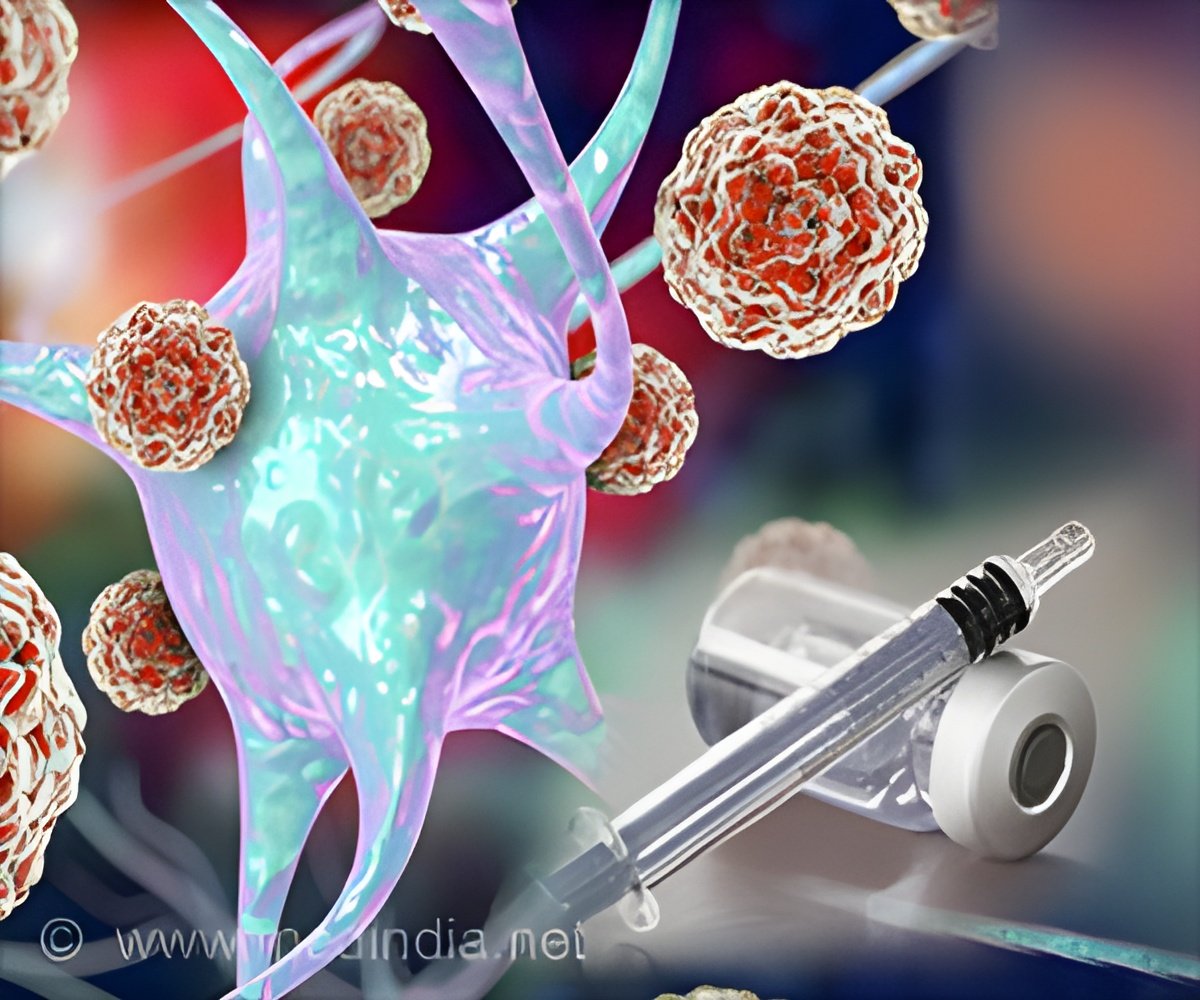
‘Virus and checkpoint inhibitor together cured 60 to 90 percent of cancer in mice, compared to zero for checkpoint inhibitor treatment alone and 20 to 30 percent for the virus alone treatment.’
Tweet it Now
In the current study, the researchers focused on "triple negative" breast cancer, which is the most aggressive and difficult-to-treat kind of breast cancer. The researchers studied three mouse models of triple negative breast cancer, and found that all were resistant to a checkpoint inhibitor which is commonly used to treat other kinds of cancer. They also found that while an oncolytic virus called Maraba could replicate inside these cancers and help the mouse's immune system recognize and attack the cancer, the virus alone had minimal impact on overall survival.
The researchers then tested the virus and checkpoint inhibitor together in models that mimic the metastatic spread of breast cancer after surgery, which is very common in patients. They found that this combination cured 60 to 90 percent of the mice, compared to zero for the checkpoint inhibitor alone and 20 to 30 percent for the virus alone. In these models, the virus was given before the surgery and the checkpoint inhibitor was given after.
"Our immune system is constantly trying to recognize and kill cancer cells, but the cancer cells are always trying to hide from it," explained Dr. Bell, senior scientist at The Ottawa Hospital and professor at the University of Ottawa. "When you infect a cancer cell with a virus, it raises a big red flag, which helps the immune system recognize and attack the cancer. But in some kinds of cancer this still isn't enough. We found that when you add a checkpoint inhibitor after the virus, this releases all the alarms and the immune system sends in the full army against the cancer."
A recently-published clinical trial confirmed that oncolytic viruses and checkpoint inhibitors have potential for treating melanoma, but this is the first study to show the potential in breast cancer. It is also the first study to test viruses and checkpoint inhibitors in a surgery and metastasis model, which is particularly relevant for patients.
Advertisement
Advertisement















